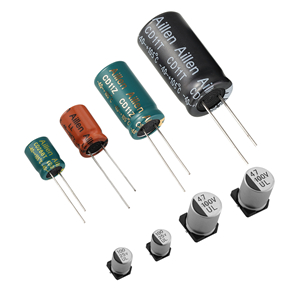Long-term storage of aluminum electrolytic capacitors may lose their effect because electrolytic capacitors need to be regularly applied with rated voltage during long-term storage, which will stimulate and maintain the activity of the electrolyte, otherwise, the electrolyte in the electrolytic capacitor will lose its activity and deteriorate. After the electrolyte loses its activity and ages, the electrolytic capacitor will fail.
Aluminum electrolytic capacitors are very sensitive to chlorine and bromine. If you use halogen-containing fluxes, cleaning agents, fixatives, fumigants, and halides, they may penetrate the inside of the capacitor through the seal, which will cause the capacitor anode Corrosion will accelerate the failure of capacitors after power-on, so it is necessary to strictly control the halogen components of related sensitizers used in the production process.
After the aluminum electrolytic capacitor is stored in a high-temperature environment for a long time, the anodic oxide film of the capacitor and the electrolyte will undergo a chemical reaction, causing the withstand voltage to drop and the leakage current to increase. When the capacitor voltage is close to the rated voltage after a sudden power-on, it will Cause over-voltage failure or excessive leakage current, resulting in overheating failure.
The most common reason for the failure of aluminum electrolytic capacitors is that the electrolyte itself evaporates over time. The capacitor is composed of a conductive layer separated by a dielectric. Its anode is an aluminum sheet with an enlarged surface area. The oxide layer is used as a dielectric layer, and the working electrolyte is a conductive liquid, so there is a problem with evaporation. The second aluminum sheet is the cathode sheet, which is used to transfer current to the working electrolyte. Anodizing is a manufacturing process used to prolong the life of the capacitor and ensure the high purity of the material used.
